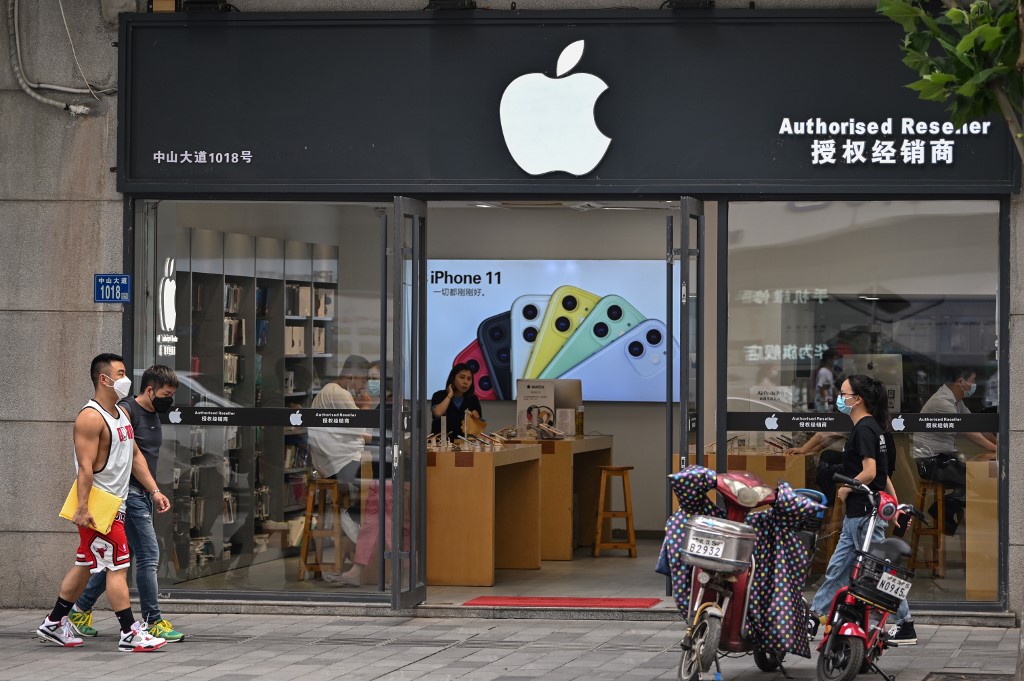(ATF) Chinese officials say they want to change the environment for foreign investment. This year’s government work report states that the country must actively use foreign capital, as well as significantly reduce the list of issues affecting foreign investment access, and draw up a list of negative issues blocking cross-border service trade.
They plan to give Pilot Free Trade Zones greater autonomy for reform and opening up, and create a market environment in which domestic and foreign enterprises are treated equally and fairly.
The moves appear to come at a time when an increasing number of foreign investors are leaving China and Hong Kong amid trade tensions with the United States and even talk of a new Cold War developing between the US, Japan and their Western allies because of complaints of technological theft and China’s more aggressive foreign policy, including its controversial takeover of parts of the South China Sea.
Huge conglomerates such as Samsung and Apple appear to be downsizing their investments in China – or lightening the risk of dependency on factories there by setting up bases in Korea, India and Southeast Asia, respectively. Google and Microsoft have also reportedly being looking to shift production of some hardware to Vietnam and Thailand.
More than 730 US companies have regional offices in Hong Kong, and there may be concern that some of these might relocate to elsewhere in the region if US-China ties deteriorate further.
Stabilising trade
Minister of Commerce Zhong Shan said stabilising foreign trade and foreign investment is of great importance. The main task is to stabilise the main body of foreign trade, while expanding and stabilising the stock of foreign capital in country.
“During the ‘Two sessions’ this year, the Ministry of Commerce proposed to focus on implementing the Foreign Investment Law, to create a fair competitive market environment, protect foreign investors ‘legitimate rights and interests, protecting intellectual property rights, and enhancing foreign investors’ confidence in long-term investment in China,” Zhong said.
Xia Jun, a tax expert, believes that China’s industrial structure is gradually upgrading from low added value, high energy consumption and high polluting to high added value, low energy consumption and low pollution. He believed that would encourage foreign investment in advanced manufacturing, emerging industries, high technology, energy conservation and environmental protection.
The pattern of China’s opening to the outside world is shifting from opening to the east to opening to the east and west, Xia Jun said. The central and western regions have also changed to becoming a frontier of the opening-up process. The advantages of tax policies were obvious and provided important opportunities for foreign investors.
NDRC ‘will work to improve foreign access’
Ning Jizhe, deputy director of the National Development and Reform Commission, said at a press conference held by the National Development and Reform Office that the NDRC will continue to cut the list of negative issues affecting foreign investment access in accordance with the requirements of the government work report this year.
Over the past three years, the negative list had been reduced from 93 to 40 complaints, he said. According to requirements of this year’s government work report, the negative list related to foreign investment will be cut compressed, while those in the service, manufacturing, and agricultural sectors will continue to be encouraged.
The NDRC said, in order to chop the negative list and implement the Foreign Investment Law, it has organised and cleared dozens of restrictions set by government units and departments. The PRC will continue to test the new ways of doing things first in Pilot Free-Trade Zones to fully implement the negative list management system, and no other separate restrictions on foreign investment should be implemented outside the list.
As Shanghai has rich experience in the development of free-trade zones, according to International Finance News. In 2013, Shanghai Free Trade Zone became China’s first free-trade zone. And in 2019, Shanghai established the Lingang Free-Trade Zone.
Hang Yingwei, deputy secretary general of the National People ‘s Congress and deputy secretary-general of the Shanghai Municipal Government, is executive deputy director of the China (Shanghai) Pilot Free-Trade Zone Management Committee. He said: “Free-trade zones are fertile ground for institutional innovation. Free-trade zones are national experimental fields and nurseries – it’s not a bonsai plant. It is necessary to pay more attention to the innovative mechanism explored by practice, which can be copied and extended to other places.”
ALSO READ: Debate swirls over HK capital flight risk
Leader Lam tries to reassure investors rattled by China law
China redraws political map to aid mega-city growth
Rural e-commerce grows as China’s stay-at-home economy thrives
























